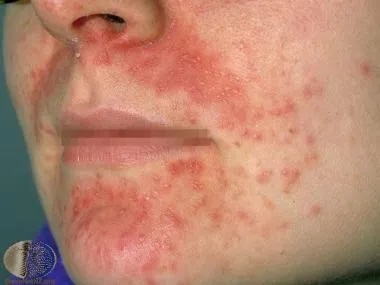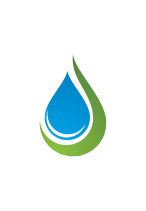Homeopathy is holistic in nature, where assessing the cause-and-effect relationship determines the treatment regimen. The homeopathic approach has proven to be beneficial to a number of patients in the treatment of perioral dermatitis. I have observed in my practice that once the causative factor for perioral dermatitis has been identified and resolved, the patient’s symptoms start to improve. Thereafter, the relevant homeopathic remedies that have symptomatic similarity to perioral dermatitis are prescribed, often achieving lasting results. So, in cases where perioral dermatitis can be traced to the use of topical steroids or contraceptive pills, homeopathic detoxification is usually carried out before commencing the treatment. Similarly, where predisposing factors such as hormonal imbalances and low frustration tolerance exist, those will first need to be dealt with before commencing the main treatment.

Perioral dermatitis is a benign but resistant skin condition that appears mostly in young female adults. It presents as small inflammatory papules and pustules around the mouth, which can also appear as pink scaly patches. Perioral dermatitis can affect the areas around eyes and nose too, and for this reason it is sometimes referred to as periorificial dermatitis. Depending on how chronic the condition is, the full course of ‘relapse and remission’ can last from several months to many years.
Potential Triggers
Although there are no defined causes of perioral dermatitis, its occurrence has been attributed to the exposure to multifarious environmental agents. There is also some evidence to suggest an association between the use of corticosteroid and the onset of perioral dermatitis, and long-term use of topical steroids has been identified as a potential risk factor in exacerbating the condition. Clinical evidence suggests that although the condition responds well initially to topical steroids, extended use may result in the condition worsening to such a degree that it becomes non-responsive to those steroids. Nasal and inhaled corticosteroids have also been identified as potential triggers of perioral dermatitis.
Some patients trace the beginning of their perioral dermatitis to the use of fluorinated toothpaste, chewing gums, and certain cosmetic products- especially the combined use of moisturisers and foundations. Interestingly, incidences of perioral dermatitis flare-ups during perimenopause and pregnancy, and also whilst using contraceptive pills, indicate the correlation of the condition to fluctuations in certain hormones. The excessive use of alcohol and low frustration tolerance (LFT) can also spark episodes of perioral dermatitis. Several investigations also suggest that Candida albicans and Demodex mites to be potential causes. Finally, individuals with heightened photosensitivity may be predisposed to developing perioral dermatitis.
How can it affect you?
Patients usually complain of a burning and stinging sensation of the skin in areas affected by perioral dermatitis. Itching is another symptom of this condition and occasionally the urge to scratch may be extreme. Excessive scratching causing skin breakage can of course harm the skin further. The use of certain skincare products may have to be limited as patients may find that using those makes the rash worse. In some cases, the simultaneous occurrence of blepharitis has been experienced.
In some patients, perioral dermatitis may resolve completely after the risk/triggers have been removed. For example, discontinuing steroids or offending cosmetic products may lead to the condition resolving completely. In some cases however, discontinuing topical steroids results in the condition relapsing and worsening, which then leads the patient to resume the application of the steroid in order to gain relief. And so the vicious cycle continues. Perioral dermatitis can often be found to be a chronic relapsing condition requiring long-term treatment. Depending on the severity of the disease, the patient may experience intense itching which can result in scarring, and which may cause emotional distress and impact quality of life.
Homeopathic Remedies for Perioral Dermatitis

There are no agreed treatment protocols for perioral dermatitis in modern medicine and therefore the treatment decisions are often based on clinical experience. This also explains the limited effect of prevalent treatment regimens. In my experience, a patient disillusioned at experiencing a return of symptoms soon after discontinuing conventional medical treatment, seek a consultation with me in the hope of a natural, gentle, and lasting cure of their perioral dermatitis. Homeopathic treatment has long been explored as a potential avenue for treatment of perioral dermatitis, often with encouraging results. There are a number of remedies that have been beneficially used in the treatment of perioral dermatitis, with the patient’s unique symptoms determining which one to be used in preference to others. Here we will discuss some of the more commonly used remedies to treat perioral dermatitis:
Antimonium crud: It is useful for treating small red pimples that may be characteristic of perioral dermatitis. There is excessive thirst and very thickly coated, white tongue. Indigestion often accompanies the condition. This remedy is also useful where hot weather exacerbates the symptoms. The excessive use of alcohol is a trigger, as is being overweight.
Graphites: It is useful for treating pimples that tend to ooze a sticky, thin discharge. There may be cracks in the lips and the patient experiences a peculiar sensation of cobwebs on the face. The patient is constipated and has delayed menstruation with symptoms being especially worse around the time of mensuration. The patient has a predisposition to be despondent but feels better when walking in the open air.
Nux vomica: Nux vomica may help to relieve the condition for people who drink alcohol excessively, are heavy smokers and generally abuse or overwork themselves. People affected with this type of perioral dermatitis often have stomach problems such as increased acid levels or constipation. Consuming cheese aggravates the condition. These people are oversensitive to external impressions, and cannot tolerate loud noises, strong odours or bright lights.
 Pulsatilla: Women whose perioral dermatitis related symptoms aggravate around the time of the menstrual period, especially when the period is late will benefit from pulsatilla. They feel lot of burning and stinging around their lips which becomes worse in the evening. Eating fatty and rich foods causes flares. The person is tearful, is predisposed to feeling cold but likes open fresh air, does not feel thirsty, and desires comfort and consolation.
Pulsatilla: Women whose perioral dermatitis related symptoms aggravate around the time of the menstrual period, especially when the period is late will benefit from pulsatilla. They feel lot of burning and stinging around their lips which becomes worse in the evening. Eating fatty and rich foods causes flares. The person is tearful, is predisposed to feeling cold but likes open fresh air, does not feel thirsty, and desires comfort and consolation.
Sepia: Helps relieve pimples in perioral area that worsen when menstruation is delayed. The pateint’s face may be red and flushed, and dotted with itchy pimples. The condition may have a correlation with sudden spikes and dips in hormonal levels. Excessive sugar consumption aggravates the condition.
Arsenicum album: It is useful for perioral dermatitis related pimples that emit an odorous discharge and burn and itch intensely. These symptoms are relieved by warm applications, but worsen with cold. The patient tends to be very fastidious, orderly, and concerned about their appearance. The pimples cause extreme distress, and the person becomes very anxious and restless.
Ledum: It is useful for red, pimply eruption of perioral dermatitis, that stings when touched. The skin feels relieved by cold applications and worsens under increased temperatures and at night. The bed’s heat is intolerable. Ledum is also useful for treating the condition of a patient that drinks too much alcohol.
Hydrastis: The type of spots that that occur on the chin can sometimes be helped with Hydrastis. The skin is generally unhealthy, and the affected person tends to perspire profusely. Discharge from the acne is often thick, yellow, and sticky.
 Bio
Bio
Haroon Ashraf is a homeopath based in London, where he offers in-person and online consultations. Haroon specialises in treating skin and gut conditions and allergies. Please visit his homeopathy practice at https://holistichomeopathy.co.uk/ for enquiries and appointments.
